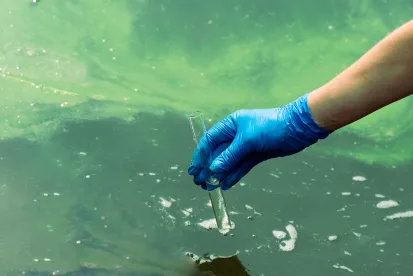Yesterday the Sacketts of Idaho shared with the United States Supreme Court, and the rest of us, their proposed definition of the jurisdictional reach of the Federal Clean Water Act. The Sacketts are in the unique position of having the Supreme Court agree to hear from them not once but twice during their decade and a half long attempt to build a house on their property.
The Ninth Circuit Court of Appeals affirmed a District Court's judgment that the reach of the Clean Water Act extends to the Sacketts' two thirds of an acre lot by applying, or perhaps misapplying, Justice Kennedy's "significant nexus" test from his concurring opinion in Rapanos sixteen years ago. The Sacketts say, with some good reason, that perhaps the "significant nexus" test is too amorphous to be consistently applied.
The Supreme Court has agreed to determine whether the Ninth Circuit erred in applying this "significant nexus" test as other Courts of Appeal have done.
When you consider the fact that the "significant nexus" test didn't command the support of a majority of the Supreme Court in 1986, the fact that three of the Justices who rejected that test then (including the Chief Justice) are all still in their seats, joined by Conservative Justices Gorsuch, Kavanaugh and Coney Barrett, and that in the last term the Supreme Court overturned fifteen of the sixteen Ninth Circuit decisions it reviewed, you get a pretty clear picture of why EPA implored the Supreme Court to let it finish its eighth attempt to determine the reach of the Clean Water Act by regulation before entering this fray.
The Sacketts' brief is an interesting history of the Federal Government's role in the protection of our nation's waters both before and after the passage of the Clean Water Act nearly fifty years ago. I'm struck by the fact that many if not most of the judicial decisions cited by the Sacketts are much older than that.
The Sacketts also have a lot to say about Congress's intention in 1972. No one can reasonably disagree with their conclusion regarding the need for "a clear and definitive articulation of the act's scope." Of course, what Congress intended that scope to be in 1972 would be irrelevant if Congress had been willing to clarify its intention over the past thirty years while the controversy over that intention has been captivating the courts.
The Sacketts suggest a two part test for determining the reach of the Clean Water Act. First, is there a continuous surface water connection between the area in question and a Water of the United States as historically defined? Second, is the area subject to Congress's constitutional commerce clause authority. It is pretty clear from the Sacketts' brief that they expect that if the answer to the first question isn't yes, the answer to the second question will almost always be "no".
Once when we were knee deep in a discussion of potentially applicable EPA guidance and regulations a very smart law professor reminded me that the Supreme Court can do whatever it wants so I should think outside that regulatory box. That's certainly true but I don't think the Supreme Court is going to adopt the Sacketts' two part test. There has, with apologies for the pun, been far too much water over the regulatory bridge over the past fifty years for such a retrenchment. But I think it quite possible that Justice Scalia's "continuous surface connection to bodies that are 'waters of the United States' in their own right" test for determining the reach of the Clean Water Act will soon be the law of the land with significant ramifications for EPA's rule making currently underway as the longest running controversy in environmental law continues.
"The years of confusion since Rapanos have shown that regulated citizens, the lower courts, and EPA need at long last a clear and definitive articulation of the act's scope," the Sacketts said in their opening brief to the high court.
https://www.law360.com/environmental/articles/1483031/high-cour...




 />i
/>i

